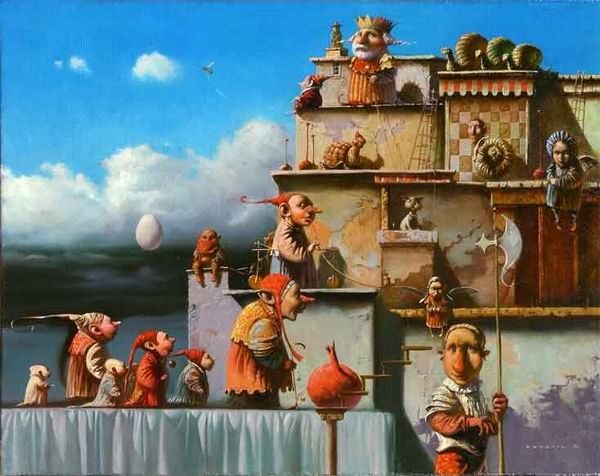Sadly, the US is Struggling to Find 5 Chess Strong
The 2015 World Team Chess Championship is taking place in Armenia next month. As it looks now, the US is not sending the three best players, Hikaru Nakamura, Wesley So and Gata Kamsky (the world’s #3, #7 and #61 respectively) to the event. Thus the US can’t expect much among a strong competition consisting of the stacked teams of Russia, China and other heavy-weight chess nations.
So another chess disappointment is waiting for us?
In a letter to The New York Times, Aletheia Donahue from Brooklyn has raised a question of why the US is struggling to find five internationally competitive players and whether it speaks to a larger problem.
America’s got talent? Maybe, but not for chess. With estimated 40 million people playing chess, only a small elite of 2,500 are of the expert and master level (with a 2,000 rating and above). Work out for yourself to find out what a miniscule percentage it is.
This situation resembles what we have in STEM, Science, Technology, Engineering, Math. More and more of our kids are taking algebra and participating in chess after-school programs than ever. And yet, performance in chess and math is declining compared with other nations. Check PISA, Program for International Student Assessment results to see how the US rank is slipping year after year in all categories, reading, math, and science. This prompts worries about America’s ability to stay on top and compete in a global economy.
So what may be reason for such high failure rate in math and other domains, including chess?
One may be “difficulty” that has become usual suspect in American culture. If something is not understood at once, it begins to annoy. Things that give gratification and pleasure must be at arm’s reach. There is no time for patience. Patience, however, is a precondition of genuine understanding. The thinking, creative mind just can’t work without it and shouldn’t be rushed.
Another suspect is early education system. Both, in chess and STEM, it seems to be more than a little out of whack. It is badly broken, needs fixing, and adds up to the “difficulty.”
What’s more, our educators are still not quite sure and have no definite answers about what constitutes good teaching. They don’t even agree what the basics in their domains should be. Yet, we need to ground kids in the basics first. We shouldn’t rush them to more advanced topics before building solid foundations. This early period of learning is critical for future success.

photo www.mgphoto.sk
In chess and math we beg for a long-awaited paradigm shift in how we start teaching. In his Chess Manual Dr.Lasker argued that “education in chess and math was a frightful waste of time and values.” As for chess, Nimzovich showed us how to start teaching a beginner the right way almost 100 years ago. It is not about moves, it is about piece relationships and purposeful thinking.
That is something they don’t get with the traditional “moves first” approach Nimzovich called “fundamentally flawed.” As a result, kids struggle early. Their confidence is undermined which further leads to gradual loss of interest. Eventually we lose thousands of kids who may become the chess experts of tomorrow. Or scientists.
“Let’s reclaim the intellectual curiosity, prowess and tenacity on which this country was founded. Could we, perhaps, start with a game of chess?” adds Aletheia.
Yes, true, but first we need to change the way we teach in order to help learners where to start looking to find visual patterns and meaning instead of promoting aimless wood pushing. Only so we can create strong grass-roots and build a wide and knowledgeable base of chess players passionate about the game. Quantity brings quality.
Then we wouldn’t be struggling to find five competitive grandmasters for world championships. Then we can expect results worthy this country’s values and ambitions.


